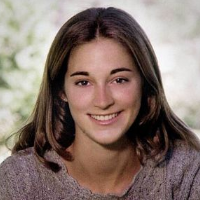San Francisco Cautiously Joins Movement to Force Mentally Ill into Treatment
 Laura Wilcox (photo: Associated Press)
Laura Wilcox (photo: Associated Press)
Despite fierce opposition from mental health advocates, San Francisco leaders have approved a policy by which a judge can be petitioned to order mandatory treatment for the mentally ill.
The San Francisco Board of Supervisors activated an option provided by the state under the 12-year-old Laura’s Law (pdf), which authorizes local governments, in limited circumstances, to force mentally ill people into treatment. Although the vote was 9-2, supporters had to make concessions to win over some board members.
Supervisor David Campos only agreed to back the move after a provision was added to create a local oversight team that will work to convince the mentally ill to voluntarily accept help first, the San Francisco Chronicle reported. Campos also said he preferred having the board approve the implementation of Laura’s Law instead of letting voters decide through the ballot box. A vote of the people would have required another vote to change the law.
Another opponent-turned-supporter, Supervisor Jane Kim, pushed through an amendment that requires an evaluation of the law in three years.
The two “no” votes came from Supervisors Eric Mar and John Avalos, who expressed concerns that the law will worsen the stigmatizing of the mentally ill and might not offer “culturally competent” care to those of different ethnic backgrounds. Some critics fear that it is vulnerable to abuse that could improperly deprive people of their civil rights.
This country readily locked up the mentally ill in “hospitals” for decades before changing policy 180 degrees in the 1960s, emptying the facilities and tossing them out on the streets. Now it locks many of them up in prisons, although California is getting major grief from the federal government for the way the state does it.
Supporters of Laura’s Law say programs similar to what San Francisco will set up reduce the time spent in hospitals, the rates of hospitalization and incarceration, suicide attempts, and violent and other anti-social behavior. Some see it as a useful tool in moving mentally ill homeless people off the street.
The law was named after teenager Laura Wilcox, who was murdered in 2001 by a psychiatric patient. It allows a family member, roommate, mental health provider or police or probation officer to, in limited circumstances, petition courts to compel outpatient treatment of a mentally ill person. However, the person must have been hospitalized or jailed for issues resulting from mental health issues problems in the past three years and have been seriously violent to himself, herself or someone else in the past four years.
Counties must opt-in to implement its provisions, something that has been slow to occur. Nevada County, where Wilcox was murdered, was the first to adopt the program. Since then, Orange County has signed on, while two others (Los Angeles and Yolo) have approved only pilot projects.
–Noel Brinkerhoff
To Learn More:
Laura’s Law Passes Easily in S.F. Supervisors’ Vote (by Marisa Lagos, San Francisco Chronicle)
S.F. Approves Laura's Law to Ensure Mentally Ill Receive Treatment (by Maura Dolan, Los Angeles Times)
Laura’s Law on Care for Mentally Ill nears Approval in S.F. (by Heather Knight, San Francisco Chronicle)
Should Involuntary Treatment for the Mentally Ill Be the Law? (by Jens Erik Gould, Time)
- Top Stories
- Controversies
- Where is the Money Going?
- California and the Nation
- Appointments and Resignations
- Unusual News
- Latest News
- California Forbids U.S. Immigration Agents from Pretending to be Police
- California Lawmakers Urged to Strip “Self-Dealing” Tax Board of Its Duties
- Big Oil’s Grip on California
- Santa Cruz Police See Homeland Security Betrayal in Use of Gang Roundup as Cover for Immigration Raid
- Oil Companies Face Deadline to Stop Polluting California Groundwater





